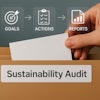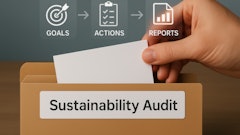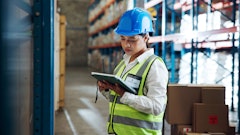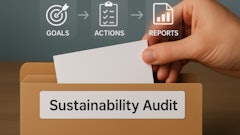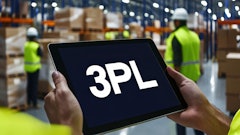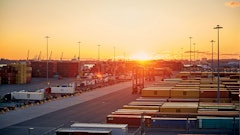
With the holidays fast approaching, you’ve likely made an online purchase only to find out those hand-blown wine glasses are backordered until January. Or perhaps, you were one of the thousands evacuated as the wildfire arrived with a vengeance at the edge of your community. These two experiences are wholly different in their level of threat to human life, but they’re becoming more frequent and show how “business failings” have a lot in common.
Shipping, logistics and climate change are vast, operating on a worldwide scale. And, they’re both complex. They reveal just how interconnected lives and businesses are in the global economy. Because of their complexity, when things go wrong—when there are disruptions, whether it’s a halt for that critical missing part or a harrowing extreme weather event, it’s tempting to deem all solutions “too little, too late” or even deny the issues altogether.
Systems strained in the name of short-term profits
Emissions are not the only link that shipping disruptions and catastrophic climate change share. Looking at them under a microscopic lens, there’s a common root cause. Both crises derive in large part from the narrow business imperative to consider only one stakeholder—shareholders—in decision-making.
Indeed, “optimizing” the global economy for short-term returns can be traced back to many of the issues in the shipping industry, from cutting the costs of warehousing and storing items to relying on just-in-time manufacturing and predictive demand to pushing workers and drivers to the brink. Ironically, these decisions are not even what’s best for investors as the incremental costs avoided are a drop in the bucket compared to the waterfall costs of system breakdowns.
Small businesses (and their shipments) will be left behind
To manage the chaos and avoid delays, large shipping and logistics companies are buying their way out of the immediate problem and investing in heavy-polluting transport. They have chartered their own container ships and purchased cargo airplanes. Small businesses without other options are unlikely to have their shipments prioritized amidst the backlog.
Oligopolies in the shipping and logistics industry consistently let small businesses down on rates, sustainability and service. It’s hard to picture anything different for container shipments when 10 companies control 82% of the market.
Click here to hear more about sustainability in the supply chain:
An environmental awakening
In shipping and logistics, there are some promising signs of problem recognition as major players set targets like net-zero by 2040 or 2050. But this action, especially if it’s forestalled for another decade, will not keep pace with the growth of emissions from e-commerce. The shipping and logistics sector, which currently accounts for about 17% of global greenhouse emissions from aviation, rail, shipping, heavy and light trucking, will need to dramatically reduce its carbon intensity to meet the increasing demand and stated reductions targets. The World Economic Forum estimates there could be 36% more delivery vehicles driving around by the end of this decade. Even if they were all-electric, how much packaging waste will be delivered by those extra vehicles on a yearly basis? It’s too gigantic to contemplate.
But, as supply chain actors, we have the opportunity now to increase business resilience and environmental sustainability all at once. Four key solutions do just that:
- Building warehousing that incorporates on-site renewable energy production.
- Purchasing solar-powered electric vehicle fleets to scale up distribution.
- Sourcing local products or ones produced in regions where trucks are frequently “back-hauled” empty to distribution hubs.
- Offsetting 100% of carbon emissions by investing in earth-saving environmental projects.
It’s fair to say that consumers are tired of all the e-commerce greenwashing. That’s why the entire e-commerce shipping and logistics industry needs to stop the electric vehicle window dressing and start a green revolution together— across air, land and sea. Consumers want to see real solutions and ambitious emissions targets, not double standards.
Balancing profit with purpose for the sake of the planet and humanity
Fortunately, there is a large contingency of businesses pursuing much-needed solutions and committing to more urgent targets. Companies, including 1,000-plus other Certified B Corporations, have committed to net-zero emissions by 2030. These businesses, large and small, are taking credible action to shift the economy to serve all stakeholders. They use frameworks like benefit corp legislation and B Corp Certification to be accountable for having a positive impact on workers, the environment and their community.
To truly address the climate crisis—which is happening now—businesses and governments need to take responsibility and action today, not next week, not next year, not in 10 years. It is possible to build and adapt our businesses to solve the most pressing and wicked problems of our time. But, it will take logistics—everyone moving in coordination and with purpose in the same direction.
